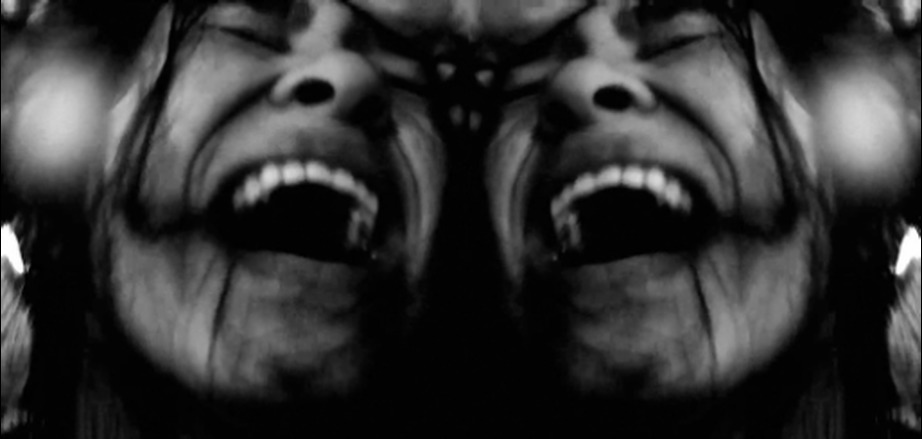- Home
- Site Index
- About Me
-
My Books
- Book List & Themes
- Strictly for Adults Novels >
-
Tales from Portlaw
>
- No Need to Look for Love
- 'The Love Quartet' >
-
The Priest's Calling Card
>
- Chapter One - The Irish Custom
- Chapter Two - Patrick Duffy's Family Background
- Chapter Three - Patrick Duffy Junior's Vocation to Priesthood
- Chapter Four - The first years of the priesthood
- Chapter Five - Father Patrick Duffy in Seattle
- Chapter Six - Father Patrick Duffy, Portlaw Priest
- Chapter Seven - Patrick Duffy Priest Power
- Chapter Eight - Patrick Duffy Groundless Gossip
- Chapter Nine - Monsignor Duffy of Portlaw
- Chapter Ten - The Portlaw Inheritance of Patrick Duffy
- Bigger and Better >
- The Oldest Woman in the World >
-
Sean and Sarah
>
- Chapter 1 - 'Return of the Prodigal Son'
- Chapter 2 - 'The early years of sweet innocence in Portlaw'
- Chapter 3 - 'The Separation'
- Chapter 4 - 'Separation and Betrayal'
- Chapter 5 - 'Portlaw to Manchester'
- Chapter 6 - 'Salford Choices'
- Chapter 7 - 'Life inside Prison'
- Chapter 8 - 'The Aylesbury Pilgrimage'
- Chapter 9 - Sean's interest in stone masonary'
- Chapter 10 - 'Sean's and Tony's Partnership'
- Chapter 11 - 'Return of the Prodigal Son'
- The Alternative Christmas Party >
-
The Life of Liam Lafferty
>
- Chapter One: ' Liam Lafferty is born'
- Chapter Two : 'The Baptism of Liam Lafferty'
- Chapter Three: 'The early years of Liam Lafferty'
- Chapter Four : Early Manhood
- Chapter Five : Ned's Secret Past
- Chapter Six : Courtship and Marriage
- Chapter Seven : Liam and Trish marry
- Chapter Eight : Farley meets Ned
- Chapter Nine : 'Ned comes clean to Farley'
- Chapter Ten : Tragedy hits the family
- Chapter Eleven : The future is brighter
-
The life and times of Joe Walsh
>
- Chapter One : 'The marriage of Margaret Mawd and Thomas Walsh’
- Chapter Two 'The birth of Joe Walsh'
- Chapter Three 'Marriage breakup and betrayal'
- Chapter Four: ' The Walsh family breakup'
- Chapter Five : ' Liverpool Lodgings'
- Chapter Six: ' Settled times are established and tested'
- Chapter Seven : 'Haworth is heaven is a place on earth'
- Chapter Eight: 'Coming out'
- Chapter Nine: Portlaw revenge
- Chapter Ten: ' The murder trial of Paddy Groggy'
- Chapter Eleven: 'New beginnings'
-
The Woman Who Hated Christmas
>
- Chapter One: 'The Christmas Enigma'
- Chapter Two: ' The Breakup of Beth's Family''
- Chapter Three: From Teenager to Adulthood.'
- Chapter Four: 'The Mills of West Yorkshire.'
- Chapter Five: 'Harrison Garner Showdown.'
- Chapter Six : 'The Christmas Dance'
- Chapter Seven : 'The ballot for Shop Steward.'
- Chapter Eight: ' Leaving the Mill'
- Chapter Ten: ' Beth buries her Ghosts'
- Chapter Eleven: Beth and Dermot start off married life in Galway.
- Chapter Twelve: The Twin Tragedy of Christmas, 1992.'
- Chapter Thirteen: 'The Christmas star returns'
- Chapter Fourteen: ' Beth's future in Portlaw'
-
The Last Dance
>
- Chapter One - ‘Nancy Swales becomes the Widow Swales’
- Chapter Two ‘The secret night life of Widow Swales’
- Chapter Three ‘Meeting Richard again’
- Chapter Four ‘Clancy’s Ballroom: March 1961’
- Chapter Five ‘The All Ireland Dancing Rounds’
- Chapter Six ‘James Mountford’
- Chapter Seven ‘The All Ireland Ballroom Latin American Dance Final.’
- Chapter Eight ‘The Final Arrives’
- Chapter Nine: 'Beth in Manchester.'
- 'Two Sisters' >
- Fourteen Days >
-
‘The Postman Always Knocks Twice’
>
- Author's Foreword
- Contents
- Chapter One
- Chapter Two
- Chapter Three
- Chapter Four
- Chapter Five
- Chapter Six
- Chapter Seven
- Chapter Eight
- Chapter Nine
- Chapter Ten
- Chapter Eleven
- Chapter Twelve
- Chapter Thirteen
- Chapter Fourteen
- Chapter Fifteen
- Chapter Sixteen
- Chapter Seventeen
- Chapter Eighteen
- Chapter Nineteen
- Chapter Twenty
- Chapter Twenty-One
- Chapter Twenty-Two
-
Celebrity Contacts
-
Thoughts and Musings
- Bereavement >
- Nature >
-
Bill's Personal Development
>
- What I'd like to be remembered for
- Second Chances
- Roots
- Holidays of Old
- Memorable Moments of Mine
- Cleckheaton Consecration
- Canadian Loves
- Mum's Wisdom
- 'Early life at my Grandparents'
- Family Holidays
- 'Mother /Child Bond'
- Childhood Pain
- The Death of Lady
- 'Soldiering On'
- 'Romantic Holidays'
- 'On the roof'
- Always wear clean shoes
- 'Family Tree'
- The importance of poise
- 'Growing up with grandparents'
- Love & Romance >
- Christian Thoughts, Acts and Words >
- My Wedding
- My Funeral
- Audio Downloads
- My Singing Videos
- Bill's Blog
- Contact Me
Chapter Sixteen: ‘Back Where It All Began’
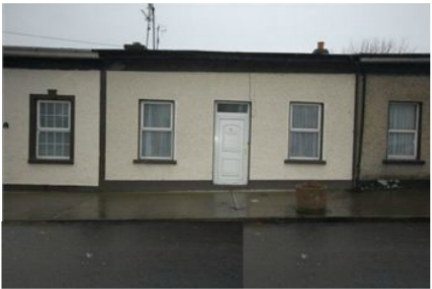
During their fortieth year of life, Nellie and Nora returned to live in Portlaw. Initially, they tried to buy the home where their mother had once lived at, 14, William Street, but the present owner initially declined their offer for it. He stated adamantly that he had no inclination to sell his home at any price.
Within one week however, word about the two sisters had spread around Portlaw and all the villagers were speaking about the mysterious events which had surrounded them in Haworth, West Yorkshire. Gossip was rife about their strange behaviour, along with the sinister powers they were said to possess.
When the reluctant seller learned of the two sisters’ ability to see into the future, as well as possessing the power to heal by their ‘laying on of hands’, he began to fear for his person. He was afraid that if he held out against the offer of the two sisters to buy his house, they might put a witch’s curse on him and turn him into a frog, or much worse, an English Protestant!
Within one week however, word about the two sisters had spread around Portlaw and all the villagers were speaking about the mysterious events which had surrounded them in Haworth, West Yorkshire. Gossip was rife about their strange behaviour, along with the sinister powers they were said to possess.
When the reluctant seller learned of the two sisters’ ability to see into the future, as well as possessing the power to heal by their ‘laying on of hands’, he began to fear for his person. He was afraid that if he held out against the offer of the two sisters to buy his house, they might put a witch’s curse on him and turn him into a frog, or much worse, an English Protestant!
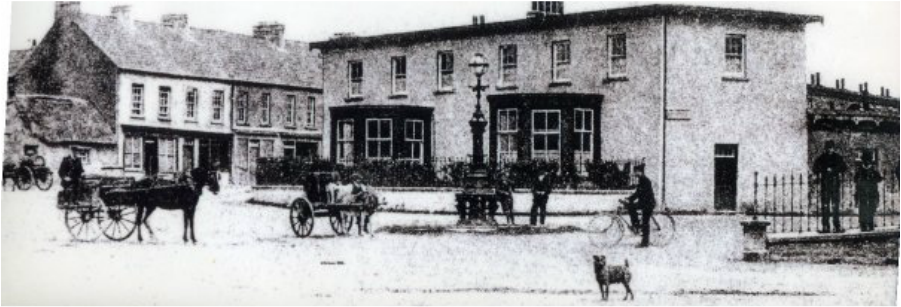
This fear led the owner of 14, William Street to have second thoughts about the generous offer he'd initially turned down from Nellie and Nora. He therefore changed his mind and decided to sell up to the two sisters and move house to another county.
Within one month of them having set foot back in the Village of Portlaw, Nellie and Nora became the proud owners of 14, William Street. Portlaw was the place where they had started in life and it was only fitting that they ended their days there.
xxxxxxxxxxxx
Within one month of them having set foot back in the Village of Portlaw, Nellie and Nora became the proud owners of 14, William Street. Portlaw was the place where they had started in life and it was only fitting that they ended their days there.
xxxxxxxxxxxx

Over the years ahead, most Portlaw villagers gradually accepted the two sisters in their midst as being a force for good. They came to see Nellie and Nora as two women who had been born ‘special people’; two sisters blessed by the hand of God and protected by angels on high.
The two sisters quickly came to command the respect of most villagers and even their strange behaviour of speaking simultaneously to outsiders was gradually accepted. Initially, that which they first saw as being unnatural in their mannerism, the villagers of Portlaw eventually accepted as being spiritual, a form of speaking in tongues.
Within the remaining fifty-nine years of their life, the fear that the two sisters first generated gradually turned to feelings of communal respect, before settling somewhere between feelings of admiration, love, adoration and finally, feelings of perceived saintliness!
xxxxxxxxxxxx
The two sisters quickly came to command the respect of most villagers and even their strange behaviour of speaking simultaneously to outsiders was gradually accepted. Initially, that which they first saw as being unnatural in their mannerism, the villagers of Portlaw eventually accepted as being spiritual, a form of speaking in tongues.
Within the remaining fifty-nine years of their life, the fear that the two sisters first generated gradually turned to feelings of communal respect, before settling somewhere between feelings of admiration, love, adoration and finally, feelings of perceived saintliness!
xxxxxxxxxxxx
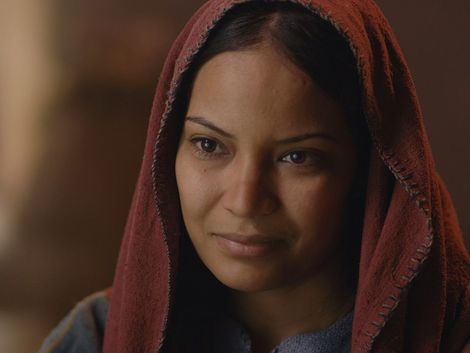
The people of Portlaw frequently went to the two sisters with their problems, illnesses or in search of their wise advice. Once the sisters had provided counsel, the villagers treated their words as being no less than sacred.
The two sisters slept in the same bed until the end of their days and throughout their sleep, they would mirror the nightly behaviour of each other. They fell asleep and awoke the very same moment as each other. When one snored gently, so did the other. When each dreamed, they shared the same dream. Every thought by them was born from one mind, every thought united in single and steadfast purpose.
The two sisters slept in the same bed until the end of their days and throughout their sleep, they would mirror the nightly behaviour of each other. They fell asleep and awoke the very same moment as each other. When one snored gently, so did the other. When each dreamed, they shared the same dream. Every thought by them was born from one mind, every thought united in single and steadfast purpose.
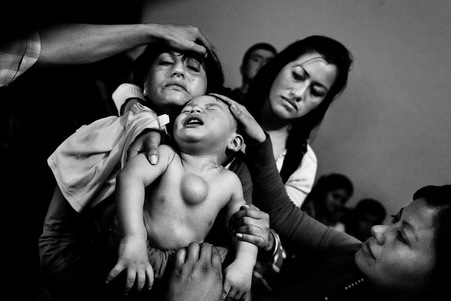
Nellie and Nora continued to have regular dreams about future events and before their third year back home in Portlaw, many of the villagers preferred to have the two sisters lay their healing hands upon their ill, instead of making the village doctor their first point of call. They were said to have cured many different forms of cancer with their healing hands.
Though the two sisters often displayed their ability to foretell future events, they were nevertheless unable to change the inevitable outcome of what they saw. Such advanced knowledge of pending doom weighed heavy on them, particularly in those situations which resulted in the loss of life and limb. Their hurt was at its highest when they foresaw the death of innocent children.
Though the two sisters often displayed their ability to foretell future events, they were nevertheless unable to change the inevitable outcome of what they saw. Such advanced knowledge of pending doom weighed heavy on them, particularly in those situations which resulted in the loss of life and limb. Their hurt was at its highest when they foresaw the death of innocent children.
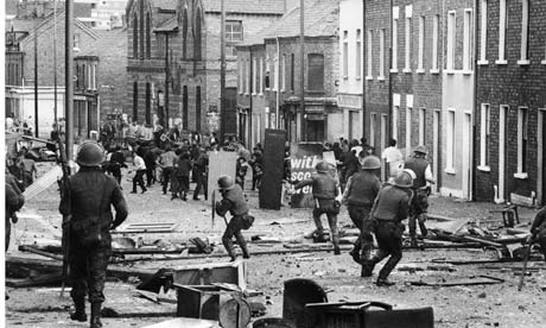
The two sisters prophesied ‘The Troubles’ as they became known. ‘The Troubles’ were a conflict between Catholic and Protestant in Northern Ireland, which spilled over at times into parts of the Republic of Ireland and the mainland of England. The sisters even foretold of the year that the conflict would end in 1998 in Belfast, with the signing of ‘The Good Friday Agreement’.
For over half a century, Nellie and Nora suffered the advanced pain of bereavement for their fellow Irish men, women and children because of them dreaming about future events and tragic consequences they could not change.
The aspect which grieved the sisters the most about their bad dreams however, was the fact that despite knowing precisely what would happen in the future, to whom, when, where and why, there was not a thing they could do to stop the incident or influence the outcome! Such action was way beyond their special powers.
The aspect which grieved the sisters the most about their bad dreams however, was the fact that despite knowing precisely what would happen in the future, to whom, when, where and why, there was not a thing they could do to stop the incident or influence the outcome! Such action was way beyond their special powers.
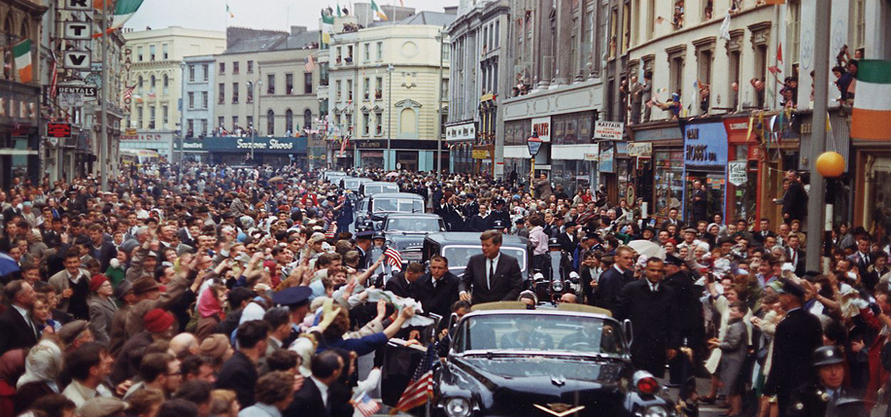
During 1962, the two sisters shared a dream of a future event; not a catastrophic happening, but an event to be welcomed. They informed the villagers of Portlaw that the President of the United States of America, John F. Kennedy, would be visiting the Republic of Ireland on June 26th, 1963, one year hence. They indicated that he would fly into Dublin on the stated date and would also visit Cork. The two sisters dreamed this dream six months before the White House staff and the President had even planned it!
The foretelling of this momentous event enabled the people of Portlaw who acted upon it, to make advance arrangements for a Cork or Dublin visit the following year before all the city accommodation had been booked up by foreign tourists. Many of them were to pay for their trip to Cork or Dublin and accommodation there, from the winnings they would make at the bookies; having placed an advanced bet that the President of America would indeed visit Ireland before the end of June 1963!
Because of the ‘tip off’ the villagers of Portlaw had received from the two sisters, numerous large bets by most men and women from Portlaw were placed with the Waterford Turf accountants. Being so far in advance, they received very long betting odds between 500 and 1000-1. After the massive pay out, every bookmaker within a twenty-mile radius from Waterford became bankrupt! Once the bookies learned of the powers of the two Portlaw sisters to foretell the future, no bookmaker between County Cork in the south and County Sligo in the north ever again took another bet from any Portlaw man, woman or child while the two sisters still drew breath!

By far the very worst dream that the two sisters ever had was during their 82nd year of life. This dream foretold of the wicked car bombing in Omagh, County Tyrone on the 15th August 1998.
The Real Irish Republican Army, a Provisional Irish Republican Army splinter group who opposed the I.R.A.’s ceasefire and the Good Friday Agreement, had perpetrated the bombing. The bombing ultimately killed 31 people (including a mother pregnant with twins), and injured some 220 others. This carnage and loss of life was the highest death toll from a single incident during ‘The Troubles’.
This dream haunted the two sisters for many months before the indiscriminate bombing occurred on the main street of Omagh and every year after, on the anniversary of the deadly explosion. They had learned over many years, of the futility of attempting to warn anyone of the carnage that was to come. All they could do was to wait in cruel anticipation and publicly mourn in silent advance.
The Real Irish Republican Army, a Provisional Irish Republican Army splinter group who opposed the I.R.A.’s ceasefire and the Good Friday Agreement, had perpetrated the bombing. The bombing ultimately killed 31 people (including a mother pregnant with twins), and injured some 220 others. This carnage and loss of life was the highest death toll from a single incident during ‘The Troubles’.
This dream haunted the two sisters for many months before the indiscriminate bombing occurred on the main street of Omagh and every year after, on the anniversary of the deadly explosion. They had learned over many years, of the futility of attempting to warn anyone of the carnage that was to come. All they could do was to wait in cruel anticipation and publicly mourn in silent advance.
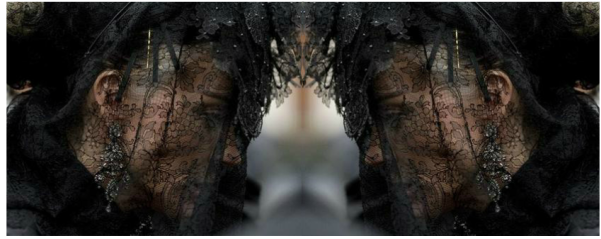
None of the people from Portlaw ever knew anything of the two sisters’ darkest dreams that forewarned of death and doom in advance of the event. Whenever the sisters had a dream relating to the death of another/others, they kept the knowledge to themselves. Only the most discerning of villagers initially suspected that some tragedy was imminent when they saw the two sisters out and about the village dressed in mourning black, with a veil across their face.
In time, the mourning clothes of the two sisters would indicate to all villagers that death loomed large for some poor soul outside the boundary of Portlaw and that the two sisters were grieving out of respect for the loss of life to come!
xxxxxxxxxxxx
In time, the mourning clothes of the two sisters would indicate to all villagers that death loomed large for some poor soul outside the boundary of Portlaw and that the two sisters were grieving out of respect for the loss of life to come!
xxxxxxxxxxxx

One strange aspect about the two sisters’ powers was the distinction between ‘who’, ‘when’ and ‘where’ they became operative and ‘with what effect’. These four aspects of consideration determined in some measure, the accurate foretelling of future events and the successful laying on of hands, which led to the curing of illness and the saving of life.
With regard to the limitations of their prophesy, while the two sisters could foresee future events about any country in which they happened to live, the range of their powers did not extend to seeing future events about any place outside the country of their present residence. Neither did their powers to see such future happenings allow them to alter the foreseen outcome.
In addition, their capacity to heal and save life was only possible on a person/creature who had been Portlaw born and bred or who resided there when the two sisters did. A person or creature might benefit from the two sisters laying on of hands outside the Portlaw boundary, providing they had been conceived or born in Portlaw. It was not until their later years of life, that the two sisters realised that the black cat they brought back to life in Haworth, West Yorkshire must have been born from a litter of kittens in the village of Portlaw, Ireland, along with any other person whose life they had saved, such as their Aunt Doris!
The two sisters came to understand that their healing performed on any Portlaw villager or person born in Portlaw, would be effective wherever the subject was presented to them, whatever the nature of their illness or the extent of their condition! However, the two sisters did not possess the power to perform a Lazarus; by bringing a person or creature back to life once they were dead!
The only exception when the two sisters did not have the power to save the life of a Portlaw resident was when the injury or death of that person had been deliberately plotted and carried out by another Portlaw resident with sinister or murderous intent.
xxxxxxxxxxxx
With regard to the limitations of their prophesy, while the two sisters could foresee future events about any country in which they happened to live, the range of their powers did not extend to seeing future events about any place outside the country of their present residence. Neither did their powers to see such future happenings allow them to alter the foreseen outcome.
In addition, their capacity to heal and save life was only possible on a person/creature who had been Portlaw born and bred or who resided there when the two sisters did. A person or creature might benefit from the two sisters laying on of hands outside the Portlaw boundary, providing they had been conceived or born in Portlaw. It was not until their later years of life, that the two sisters realised that the black cat they brought back to life in Haworth, West Yorkshire must have been born from a litter of kittens in the village of Portlaw, Ireland, along with any other person whose life they had saved, such as their Aunt Doris!
The two sisters came to understand that their healing performed on any Portlaw villager or person born in Portlaw, would be effective wherever the subject was presented to them, whatever the nature of their illness or the extent of their condition! However, the two sisters did not possess the power to perform a Lazarus; by bringing a person or creature back to life once they were dead!
The only exception when the two sisters did not have the power to save the life of a Portlaw resident was when the injury or death of that person had been deliberately plotted and carried out by another Portlaw resident with sinister or murderous intent.
xxxxxxxxxxxx
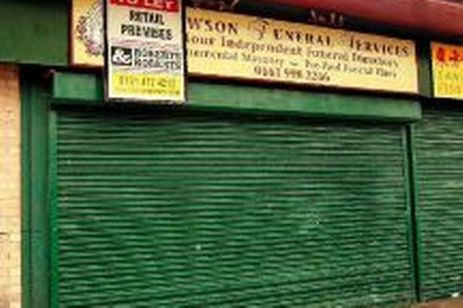
During the years ahead, the powers of the two sisters were to have an enormous effect upon the people and population of Portlaw. Over time, the doctor in Portlaw gradually became redundant, along with Harry Forde, the part time undertaker in the village.
You see, for a period of fifty-nine years, up until the two sisters died, no other Portlaw resident went to their graves. The only Portlaw residents to die during these six decades were the ones secretly poisoned or murdered by their unhappy spouses or cheated lovers.
With the remainder of the parish enjoying remarkably good health and the almost erradication of Portlaw deaths, there was insufficient business for either doctor or funeral director to ply their trade and earn a living.
You see, for a period of fifty-nine years, up until the two sisters died, no other Portlaw resident went to their graves. The only Portlaw residents to die during these six decades were the ones secretly poisoned or murdered by their unhappy spouses or cheated lovers.
With the remainder of the parish enjoying remarkably good health and the almost erradication of Portlaw deaths, there was insufficient business for either doctor or funeral director to ply their trade and earn a living.
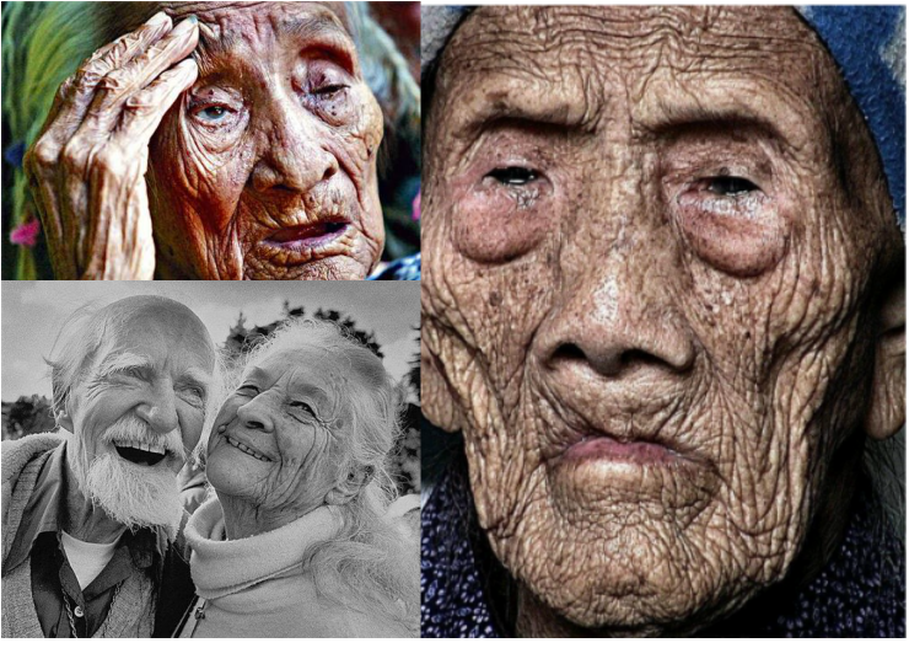
Over the next half century, Portlaw held the record for the world’s oldest man, the world’s oldest woman and the world’s oldest married couple, as well as being able to boast of having the only living great, great, great, grandfather ever known! In addition, over half of the entire population of Portlaw was aged in excess of 100 years and the General Post Office required an armoured truck to carry the weekly pensions!
xxxxxxxxxxxx
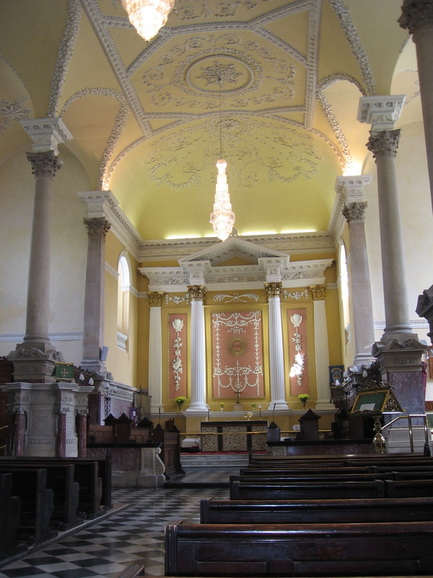
Nellie and Nora Fanning never missed a Sunday morning attending the Catholic Church in Portlaw and the front pew was always left vacant for them to sit there as honoured citizens of the village. As the years passed by, their fame spread to every corner of Ireland. Indeed, many a person from hundreds of miles away would travel to Portlaw in pilgrimage to see the two sisters. Many would bring their sick relatives in the hope they might receive the healing touch. Some came with empty water containers, which they would seek to fill from the tap in the home of the two sisters. The visitors believed such water to be blessed with magic and holy properties.
Some pilgrims would be crippled with arthritis, others might be wheelchair bound or suffering from some other malady which plagued their lives. Often, half a dozen with an incurable terminal illness would come to see the two sisters of Portlaw, in the hope of receiving a miracle cure. All would plead for the two sisters to ‘lay hands on them’ and most became angry and aggrieved and felt bitterly cheated when a miracle was not performed.
The two sisters were content to lay hands on the site of the pilgrim’s body afflictions in prayer, but they never promised healing as a likely outcome. Some seemed content to receive the prayerful touch of the two sisters while most resented the apparent discrimination of their healing powers, which seemed to be confined solely to the people of Portlaw.
Some pilgrims would be crippled with arthritis, others might be wheelchair bound or suffering from some other malady which plagued their lives. Often, half a dozen with an incurable terminal illness would come to see the two sisters of Portlaw, in the hope of receiving a miracle cure. All would plead for the two sisters to ‘lay hands on them’ and most became angry and aggrieved and felt bitterly cheated when a miracle was not performed.
The two sisters were content to lay hands on the site of the pilgrim’s body afflictions in prayer, but they never promised healing as a likely outcome. Some seemed content to receive the prayerful touch of the two sisters while most resented the apparent discrimination of their healing powers, which seemed to be confined solely to the people of Portlaw.
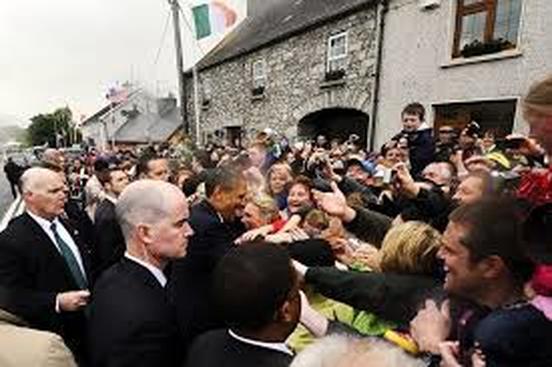
Eventually, the two sisters were requested by the ‘Portlaw Town Council’ to stop performing their ‘laying on of hands’ upon the thousands of visitors who arrived in the village daily. Village life had become intolerable ever since word of the sisters’ powers had spread across the land. On every single day of the week now, over fifty busloads of visitors would descend upon Portlaw like a swarm of locusts seeking out the two sisters, the house where they lived and the church that they attended.
The shops, pubs and even the Catholic Church of Portlaw was initially highly pleased to have the increased business of the visitors and the additional revenue they brought, but once the village had become too crowded night and day, every day of the year, all peace in the Parish of Portlaw quickly came to an abrupt end.
The shops, pubs and even the Catholic Church of Portlaw was initially highly pleased to have the increased business of the visitors and the additional revenue they brought, but once the village had become too crowded night and day, every day of the year, all peace in the Parish of Portlaw quickly came to an abrupt end.
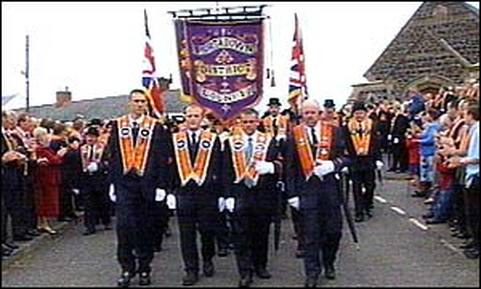
Before long, all the things that went to make up the character of the village and which the residents had grown to love began to disappear. Portlaw was no longer the lovely place it used to be!
The straw that broke the camel’s back was the when busloads of Protestants from Belfast started coming down from the North of Ireland to visit Portlaw every day of the week throughout the entire year. Unionist and Orange marches would sometimes take place upon the streets of Portlaw. That was when the ‘Portlaw Town Council’ decided enough was enough and that the time had arrived to call a halt.
From opening to closing hours daily, every pub in Portlaw had every inch of floor space filled with visitors from all four corners of the land. With all Portlaw pubs crowded, it was impossible to see the bar, let alone for any Portlaw patron to get close enough to order a pint!
Even, many of the Protestants from the troubled north who had heard of the numerous miracles performed by Nellie and Nora Fanning, wanted to see the two sisters for themselves, before considering converting to Roman Catholicism!
The Town Council and even the Parish Priest saw this sudden change as being one-step too far! Were large numbers of Belfast Protestants to decide to convert to Roman Catholicism overnight, the Ulster loyalist’s militant groups from Belfast would be outraged in new rebellion! It was feared that they would probably respond by sending daily bombing parties into the village of Portlaw, blowing up the Catholic Church during Sunday Mass when it was packed to the rafters and shooting everyone on sight on the open streets and in the public houses.
The straw that broke the camel’s back was the when busloads of Protestants from Belfast started coming down from the North of Ireland to visit Portlaw every day of the week throughout the entire year. Unionist and Orange marches would sometimes take place upon the streets of Portlaw. That was when the ‘Portlaw Town Council’ decided enough was enough and that the time had arrived to call a halt.
From opening to closing hours daily, every pub in Portlaw had every inch of floor space filled with visitors from all four corners of the land. With all Portlaw pubs crowded, it was impossible to see the bar, let alone for any Portlaw patron to get close enough to order a pint!
Even, many of the Protestants from the troubled north who had heard of the numerous miracles performed by Nellie and Nora Fanning, wanted to see the two sisters for themselves, before considering converting to Roman Catholicism!
The Town Council and even the Parish Priest saw this sudden change as being one-step too far! Were large numbers of Belfast Protestants to decide to convert to Roman Catholicism overnight, the Ulster loyalist’s militant groups from Belfast would be outraged in new rebellion! It was feared that they would probably respond by sending daily bombing parties into the village of Portlaw, blowing up the Catholic Church during Sunday Mass when it was packed to the rafters and shooting everyone on sight on the open streets and in the public houses.
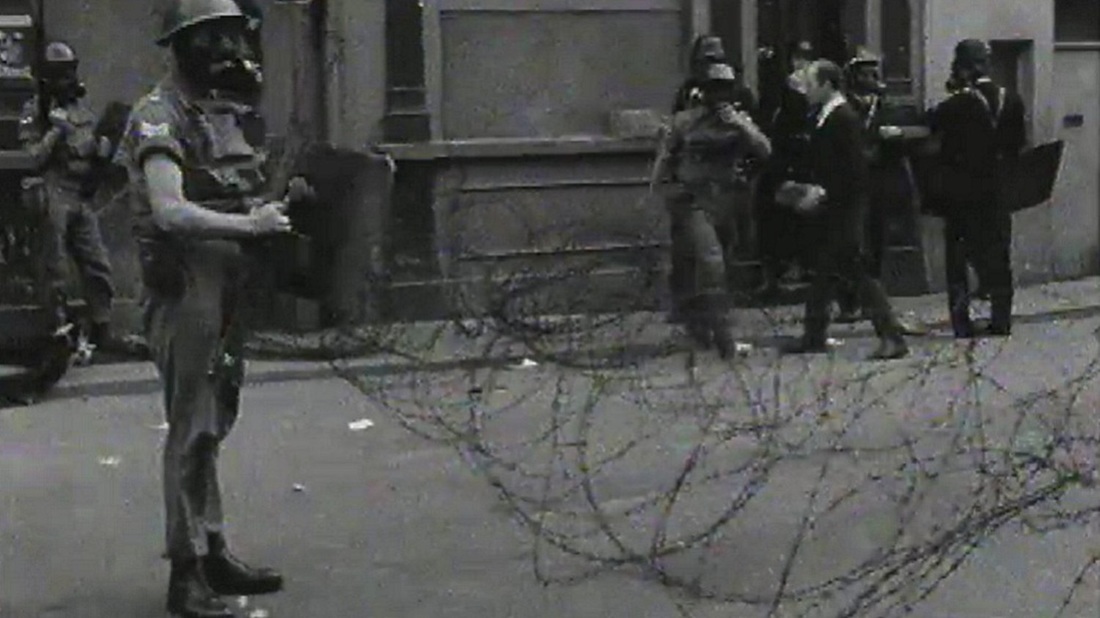
By and large, Portlaw had kept itself and its citizens relatively free from ‘The Troubles’ since they'd started. The overwhelming majority of the bombing and shootings between the warring factions in Ireland tended to be confined to the six northern counties of partition, and in particular, Belfast and Derry. It was clearly the wish of the Portlaw Town Council, that the shootings, bombings and killings should remain in the six counties!
The villagers of Portlaw, particularly the town drinkers, had always preferred to drink their Guinness quietly, propping up the bar and talking about war with the Protestants without ever needing to engage in it! It was the lively tune of fiddler and accordion player they wished to hear in the background of their conversations and quiet drinking, not the cries of innocent bystanders being blown to bits by planted bombs before they had emptied their beer glass!
Indeed, the only troubles that Portlaw had known since the British Army had been deployed in Northern Ireland in August 1969, was of minor proportion. While the folks of Derry and Belfast were blowing each other to smitherines, what little upset Portlaw had experienced during ‘The Troubles’ was small beer by comparison.
Portlaw ‘troubles’ were largely home-grown ones and included the temporary interference in the village’s electricity supply during a bad storm of 1971. In 1976, all public houses in Southern Ireland were rationed and every drinker was allowed to buy two glasses of Guinness per day only, during a three day strike period when every drayman from Dublin to Donegal stopped work for a shilling an hour increase in their wages.
The villagers of Portlaw, particularly the town drinkers, had always preferred to drink their Guinness quietly, propping up the bar and talking about war with the Protestants without ever needing to engage in it! It was the lively tune of fiddler and accordion player they wished to hear in the background of their conversations and quiet drinking, not the cries of innocent bystanders being blown to bits by planted bombs before they had emptied their beer glass!
Indeed, the only troubles that Portlaw had known since the British Army had been deployed in Northern Ireland in August 1969, was of minor proportion. While the folks of Derry and Belfast were blowing each other to smitherines, what little upset Portlaw had experienced during ‘The Troubles’ was small beer by comparison.
Portlaw ‘troubles’ were largely home-grown ones and included the temporary interference in the village’s electricity supply during a bad storm of 1971. In 1976, all public houses in Southern Ireland were rationed and every drinker was allowed to buy two glasses of Guinness per day only, during a three day strike period when every drayman from Dublin to Donegal stopped work for a shilling an hour increase in their wages.
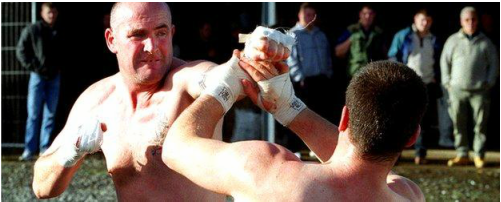
There was also a bare-knuckled fistfight between John Grogan and Doc Morrissey in 1977. This was over the affair that had taken place between Doc Morrissey and John’s wife, Molly Grogan. When her husband had been laid up in hospital for three weeks, Molly Grogan was laid up with Doc Morrissey in Jim Ruffin’s barn as they rolled around in the hay!
Upon discovering his wife's infidelity, John Grogan went wild with rage and challenged Doc Morrissey to a bare knuckle street fight, where the final round would only come around after one of the two boxers had been knocked unconscious.The fight lasted forty minutes and went on so long that both men retired to the pub for half a glass of Guinness half way through it, before resuming their battle in the street outside. The fight eventually spread from the pub into the Village Square, down William Street and back along Brown Street before the Parish Priest, Father McGuire, stopped it by threatening to ban both brawlers from confession and holy communion if they didn't stop instantly; as well as reading out their names at the next Sunday Mass and recording their names in the 'Parish's Book of Shame.'
'The Parish Book of Shame' was a black book which was originally Father McGuire's pet idea. Its sole purpose was to reduce the overall level of parish sin while he was parish priest of Portlaw. Into the black book went the name of every parishioner who offended in a way which brought shame to themselves, their families and the Holy Catholic Church. 'The Parish Book of Shame' was available at the back of the church for public viewing by any Portlaw Roman Catholic. Naturally, all persons stealing cows, engaging in any unnatural practice with sheep, robbing the post office, stealing from the church collection plate, having an abortion, or being unmarried and parenting children, would be included in the black book. Another offence to get one's name in the 'Parish Book of Shame' would be to refuse to obey any instruction given by the parish priest, whether it be stop fighting in the street, stop beating your wife after a night out at the pub or entering any Protestant Church for any reason, even if one were a member of the fire service and the said building was ablaze!
Upon discovering his wife's infidelity, John Grogan went wild with rage and challenged Doc Morrissey to a bare knuckle street fight, where the final round would only come around after one of the two boxers had been knocked unconscious.The fight lasted forty minutes and went on so long that both men retired to the pub for half a glass of Guinness half way through it, before resuming their battle in the street outside. The fight eventually spread from the pub into the Village Square, down William Street and back along Brown Street before the Parish Priest, Father McGuire, stopped it by threatening to ban both brawlers from confession and holy communion if they didn't stop instantly; as well as reading out their names at the next Sunday Mass and recording their names in the 'Parish's Book of Shame.'
'The Parish Book of Shame' was a black book which was originally Father McGuire's pet idea. Its sole purpose was to reduce the overall level of parish sin while he was parish priest of Portlaw. Into the black book went the name of every parishioner who offended in a way which brought shame to themselves, their families and the Holy Catholic Church. 'The Parish Book of Shame' was available at the back of the church for public viewing by any Portlaw Roman Catholic. Naturally, all persons stealing cows, engaging in any unnatural practice with sheep, robbing the post office, stealing from the church collection plate, having an abortion, or being unmarried and parenting children, would be included in the black book. Another offence to get one's name in the 'Parish Book of Shame' would be to refuse to obey any instruction given by the parish priest, whether it be stop fighting in the street, stop beating your wife after a night out at the pub or entering any Protestant Church for any reason, even if one were a member of the fire service and the said building was ablaze!
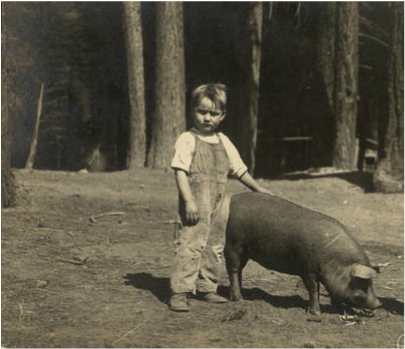
Then, in June 1978, there was the falling out between the Portlaw families of Walker and Butt. The neighbours Jenny Walker and Sean Butt of William Street were the main protagonists in the slaying and the vendetta that followed.
Jenny Walker accused the youngest Butt son of stealing the Walker’s piglet that lived on a piece of waste ground behind the Walker house.
The Walker family went to bed on the night in question and awoke next day to find an empty pigsty. During the night, Jenny Walker had been aroused from her sleep by the sound of a squealing pig and immediately went to her bedroom window and looked out. In the distance, she thought she saw the silhouette of neighbour Sean Butt walking away from the area of the waste ground with a squealing pig being pulled along by a rope around its neck.
Jenny Walker had a reputation in Portlaw for being a heavy drinker. She was known as a woman who drank far too much stout, and far too often for her own sense of well being. Also, young Sean Butt was only seven years old and was far too small in the minds of others to be able to handle so big a task as the theft of a pig who weighed more than himself! Subsequently, most folk refused to hold Jenny Walker's account of the disappearing pig as being wholly credible.
On the night before the pig went missing, Jenny Walker went to sleep, as drunk as a skunk and could not in all honesty know whether she had really seen what she said she had seen through her bedroom curtains, or whether she'd been dreaming!
For months later, all the Butt children were seen daily walking around the village eating bacon butties and grinning as wide as Kilkenny Cats as they threw the rind of their rashers into the Walker garden. Though it was never proved beyond a shadow of doubt as to who the pig thief had been, Jenny Walker knew deep down that Sean Butt was the one responsible for stealing their pig and then getting the rest of his large family to eat the evidence.
Jenny Walker accused the youngest Butt son of stealing the Walker’s piglet that lived on a piece of waste ground behind the Walker house.
The Walker family went to bed on the night in question and awoke next day to find an empty pigsty. During the night, Jenny Walker had been aroused from her sleep by the sound of a squealing pig and immediately went to her bedroom window and looked out. In the distance, she thought she saw the silhouette of neighbour Sean Butt walking away from the area of the waste ground with a squealing pig being pulled along by a rope around its neck.
Jenny Walker had a reputation in Portlaw for being a heavy drinker. She was known as a woman who drank far too much stout, and far too often for her own sense of well being. Also, young Sean Butt was only seven years old and was far too small in the minds of others to be able to handle so big a task as the theft of a pig who weighed more than himself! Subsequently, most folk refused to hold Jenny Walker's account of the disappearing pig as being wholly credible.
On the night before the pig went missing, Jenny Walker went to sleep, as drunk as a skunk and could not in all honesty know whether she had really seen what she said she had seen through her bedroom curtains, or whether she'd been dreaming!
For months later, all the Butt children were seen daily walking around the village eating bacon butties and grinning as wide as Kilkenny Cats as they threw the rind of their rashers into the Walker garden. Though it was never proved beyond a shadow of doubt as to who the pig thief had been, Jenny Walker knew deep down that Sean Butt was the one responsible for stealing their pig and then getting the rest of his large family to eat the evidence.
